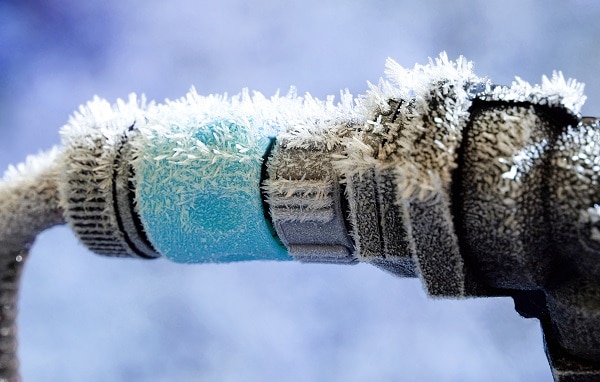Critical Winterizing Strategies: Five Ways to Keep Pipes from Bursting
Critical Winterizing Strategies: Five Ways to Keep Pipes from Bursting
Blog Article
Everyone is bound to have their personal theory in relation to How to stop pipes from freezing during the winter.

All property owners who live in warm climates need to do their ideal to winterize their pipelines. Failing to do so can spell disaster like frozen, cracked, or burst pipelines.
Attempt a Hair Clothes Dryer or Warmth Gun
When your pipes are almost freezing, your trusty hair dryer or heat gun is a godsend. Bowling warm air directly right into them might aid if the hot towels do not assist remove any type of resolving ice in your pipes. Do not make use of various other objects that create straight flames like a strike lantern. This can result in a bigger catastrophe that you can not regulate. You may end up harmful your pipelines while trying to melt the ice. And in the long run, you may also end up burning your home. So be careful!
Open Up Closet Doors Hiding Plumbing
It would certainly be useful to open up cupboard doors that are camouflaging your pipelines when it's chilly outside. For example, they could be somewhere in your kitchen area or washroom. This will permit the warm air from your heating system to circulate there. As a result, you avoid these revealed pipes from cold. Doing this small trick can keep your pipes cozy and limit the potentially hazardous end results of freezing temperature levels.
Take Time to Cover Exposed Water Lines
One easy and also great hack to heat up cold pipes is to wrap them with warm towels. You can cover them first with towels. After securing them in place, you can put boiling water on the towels. Do it slowly to allow the towels soak up the liquid. You can also use pre-soaked towels in hot water, simply don't neglect to use safety gloves to secure your hands from the warmth.
Activate the Faucets
When the temperature level declines and it seems as if the frigid temperature will last, it will help to switch on your water both indoors and outdoors. This will maintain the water flowing via your plumbing systems. Additionally, the motion will slow down the freezing process. Significantly, there's no demand to transform it on full blast. You'll wind up losing gallons of water by doing this. Instead, go for about 5 declines per minute.
When Pipes are Frozen, shut Off Water
Shut off the major water shutoff right away if you discover that your pipes are completely icy or virtually nearing that stage. You will normally discover this in your cellar or laundry room near the heating system or the front wall closest to the street. Turn it off right away to stop additional damages.
Don't neglect to close outside water sources, as well, such as your connection for the garden home. Doing this will certainly stop added water from filling up your plumbing system. With more water, even more ice will certainly pile up, which will ultimately lead to break pipelines. If you are not sure concerning the state of your pipelines this winter, it is best to call a specialist plumber for an inspection. Taking this proactive strategy can conserve you hundreds of bucks out of commission.
All home owners who live in pleasant climates have to do their best to winterize their pipelines. Failure to do so can lead to catastrophe like icy, broken, or ruptured pipelines. If the warm towels do not help remove any kind of working out ice in your pipelines, bowling hot air straight right into them might assist. Transform off the primary water shutoff right away if you notice that your pipelines are entirely icy or almost nearing that stage. With more water, more ice will pile up, which will eventually lead to rupture pipelines.
PREVENT YOUR PIPES FROM FREEZING THIS WINTER
A Leading Cause of Property Damage
When the weather is taking a deep nose dive into the cold dreary days, the risk of your pipes freezing and potentially bursting skyrockets. Unfortunately, during these cold dreary months, burst pipes are the most common denominator for property damage. The pipes that are most at the risk are those that are in areas where it is most cold in your home. For instance, pipes located in interior places such as basements, attics, and your garage. Unfortunately, that doesn’t mean that the pipes running through your cabinets or exterior walls can’t freeze. Good news, however, is that you can do things to help prevent pipes from freezing.
How to Prevent Pipes From Freezing
Once the temperature starts to drop during the winter, you should be taking the proper measures needed to ensure that your pipes stay warm and that there is circulation of water through them. Some steps that experts may recommend could go against your better judgement when it comes to saving water and heat. However, it would go without saying that when expenses are compared, damaged pipes could put a bigger dent in your wallet than a water bill.
What Can I Do?
Keep your garage door closed. This is very important, especially if you have water supply lines running through your garage. Open your kitchen and bathroom cabinets to allow warm air to circulate through them. Allow air circulation throughout your home. Keeping the interior doors open will once again allow the warm air to circulate inside your home. Ensure your thermostat is running the same temperature throughout the night and day. If you plan to be away from home during the cold months, set your temperature no lower than 55° F. This should provide enough heat to keep the pipes warm and prevent any remaining water inside the pipes from freezing. For more of a long-term solution, add insulation to attics, basement, and other crawl spaces around your home. By allowing your faucet to drip, it will alleviate pressure in the system. This is important because the pressure that is created between the blockage and the faucet can potentially cause the pipes to burst. Allowing the faucet to drip will prevent the pressure from building up, therefore keeping the pipes from bursting. Seal any cracks, openings, and crawl spaces around your home to prevent cold air from coming inside. This keeps your pipes-not to mention your home-warmer and less susceptible to issues caused by freezing temperatures. For the pipes in your home that are easily accessible, applying electrical tape to them might prevent them from freezing over. This is a quick fix, as you can apply the tape directly to the pipe. There are two options for heating tapes. One turns on and off by itself when it senses heat is needed. The other type of heating tape needs to be applied when heat is needed and removed when not necessary. If you have exposed pipes in your home, you can check this website to take a look at a few options that would be available at a shop near you.

I recently found that review about How to stop pipes from freezing during the winter when surfing the web. Sharing is nice. You just don't know, you might be doing someone a favor. Kudos for your time. Visit again soon.
Contact Us Report this page